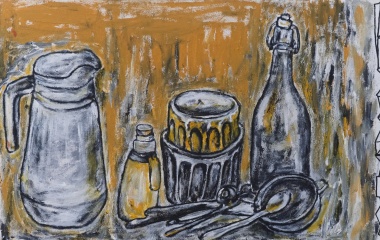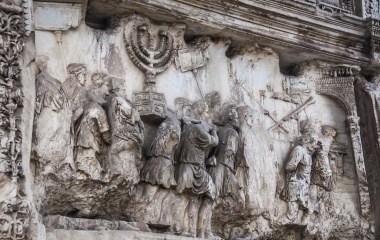
|
I have a confession to make. I really like Yom Tov and look forward to having an extra day to celebrate. I know that is not the way the Torah envisioned Yom Tov, and I know my feelings may represent agalut mentality, yet I still love Yom Tov. So the struggle many have with the continued relevance of the second day of Yom Tov, considering it an unnecessary burden, is not one I share. Of course, having the zechut, good fortune, to work in the field of Jewish education, I have the luxury of not having to miss work for Yom Tov. It was this economic hardship that was one of the motivating factors that led the Reform movement to abolish the second day as one of its earliest reforms. This argument is bolstered by the claim that the reason for the second day has long ceased to be applicable, and makes little sense today. And yes, that argument is correct--to a point. The second day was initially instituted due to sfeikah deyoma, to a doubt as to when the new month had been declared. With our calendar having been fixed in the mid 4th century, the need for the second day has long passed. This argument is powerful enough that the Talmud (which was not completed until the beginning of the sixth century) itself asks, "and nowadays that we know how to establish the calendar, why do we observe two days?" (Beitzah 4b). It appears the answer to such was not at all clear to the Babylonian rabbis, with the answer to this question having to come from the land of Israel: "They sent from there: Be meticulous in the customs of your forefathers; perhaps there will be government persecution and they will come to make a mistake [regarding the calendar]"[1]. Our observance of the second day of Yom Tov has little to do with calendric doubt and much to do with maintaining custom, especially in an often-hostile world[2]. What I find fascinating is that the reason Babylonia became the centre of Jewish life--and it is Talmud Bavli, not Yerushalmi, which is authoritative--is due to religious persecution in Israel. The Jews in Bavel thankfully never experienced anything as severe as the Hadrianic persecutions. Surely when the Rabbis in Babylonia were discussing the reason for the second day of Yom Tov, Jewish life was far better in Bavel than in Israel. Yet our Rabbis ordained that it is in the Diaspora where Jewish life is adjusted due to persecution. In the land of Israel, in our homeland, we must not let our enemies impact on our observance. Yet the distinction between Israel and the Diaspora runs deeper than anti-Semitism. The observance of Yom Tov Sheni is not applied consistently in Israel or in the Diaspora. Even in Israel, there is a second day of Rosh Hashanah, and we only observe one day of Yom Kippur worldwide[3]--and yet, five days later, we are suddenly "unsure" about the proper day of Sukkot. In practice, the distinction between Israel and the Diaspora manifests itself only in regard to Pesach, Shavuot, and Sukkot, the three pilgrim festivals. It is these festivals that celebrate the agricultural cycle of the land of Israel, it is on these festivals that there is a mitzvah to come to Jerusalem, and it is on these festivals that there is a mitzvah of simcha, to rejoice. It is on these festivals that we celebrate Jewish nationhood--as opposed to Rosh Hashanah and Yom Kippur, with their focus on individual repentance. In short, it is these festivals where the difference between Israel and the Diaspora is most pronounced[4]. Israel serves as a haven for Jews facing persecution around the world. More importantly, it is the nation-state of the Jewish people, the place where the hand of G-d can be seen in nature, where we can worship G-d in the eternal capital of the Jewish people. And it is only in the land of Israel that we can properly observe the Torah as it was meant to be. And all this is no less true today than it was in the days before our calendar was fixed. It truly behooves us to remind ourselves of the centrality of the land of Israel as we, who have not yet merited to live in the Land of Israel, observe Yom Tov sheni shel galuyot, the second day of Yom Tov of exile. [1] There is a debate whether these are two separate explanations, or if the fear of persecution is the reason we need to observe this particular custom. [2] It is worth noting that before the Iron Curtain fell, one of the most valuable items smuggled into Russia was a Jewish calendar. Often people literally did not know when Yom Tov was! [3] While there are technical reasons that explain these exceptions, the fact remains that the second day of Yom Tov manifests itself only on the shalosh regalim. [4] It is worth noting that in the Diaspora--and only in the Diaspora--on each of the holidays of Pesach, Shavuot, and Sukkot, we read "kol habechor" (Devarim 15:19 - 16:17), which discusses the three pilgrim festivals and the mitzvah of aliyah leregel, coming to Jerusalem for Yom Tov. Our Rabbis of old could chastise in the most subtle and beautiful of ways. (I thank Rabbi Menachem Leibtag for this insight.) |



